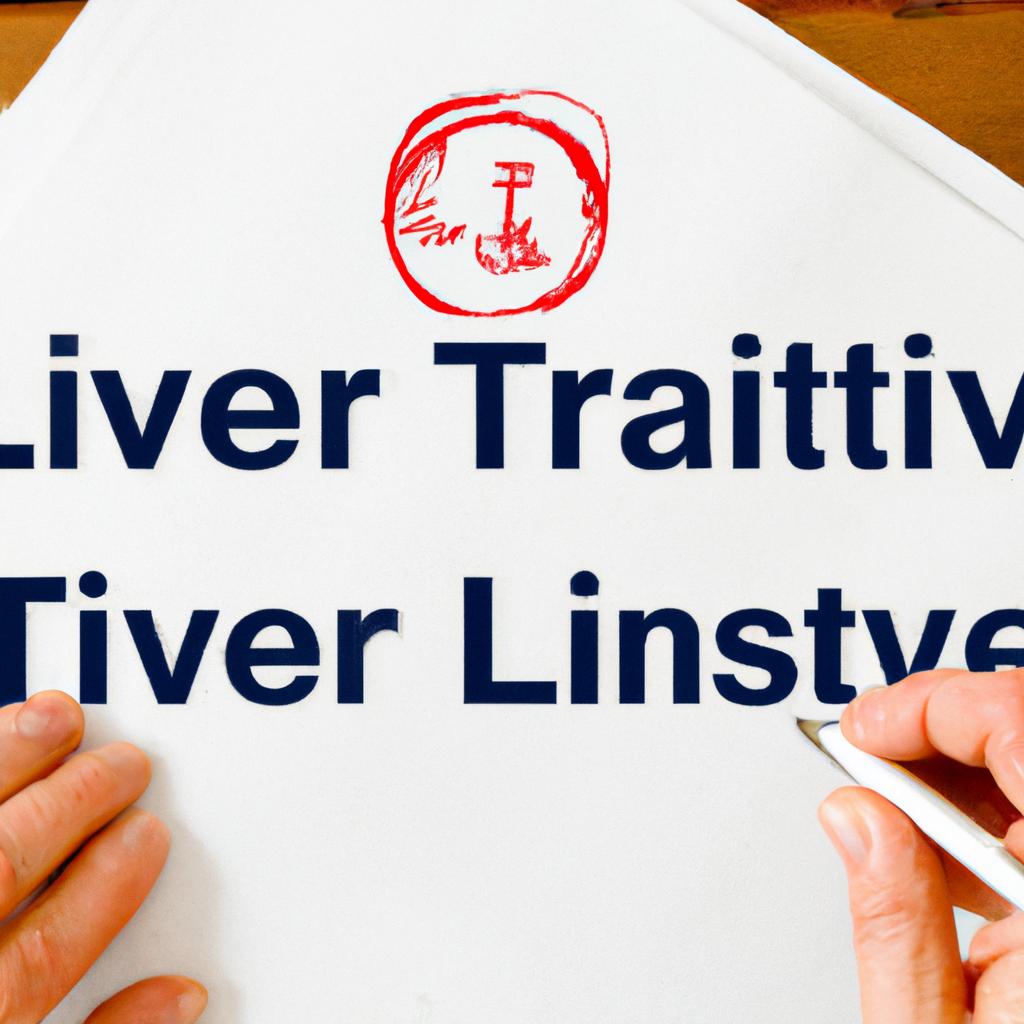In the realm of estate planning, the debate between utilizing a living trust versus a revocable trust continues to captivate individuals seeking to protect their assets and legacy. As seasoned practitioners in the field of law, the Morgan Legal Group in New York City navigates clients through the intricacies of Wills, trusts, probate, and elder law. In this article, we delve into the nuances of living and revocable trusts, exploring the advantages and considerations that come with each option. Join us as we unravel the complexities of estate planning and empower you to make informed decisions for the preservation of your estate.
Living Trust vs Revocable Trust: Understanding the Key Differences
When it comes to estate planning, understanding the differences between a living trust and a revocable trust is crucial. While both types of trusts offer benefits in terms of asset protection and privacy, there are key distinctions that can impact your estate planning goals.
Living Trust:
- Also known as an inter vivos trust
- Created during the grantor’s lifetime
- Assets are transferred into the trust
- Can bypass probate process
- Grantor retains control over assets
Revocable Trust:
- Can be changed or revoked by the grantor
- Offers flexibility in estate planning
- Assets are transferred into the trust
- Can bypass probate process
- Grantor has control over trust assets

Maximizing Control and Flexibility: The Benefits of a Revocable Trust
If you are considering establishing a trust as part of your estate planning strategy, it is essential to understand the key differences between a living trust and a revocable trust. While both types of trusts offer benefits in terms of control and flexibility, a revocable trust provides unique advantages that can help you achieve your estate planning goals effectively.
A revocable trust allows you to maintain control over your assets during your lifetime while also providing the flexibility to make changes as needed. With a revocable trust, you can:
- Modify the terms of the trust: You have the ability to amend or revoke the trust at any time, giving you the flexibility to adapt to changing circumstances.
- Manage your assets: As the trust creator, you retain the power to manage and control the assets held in the trust, ensuring that your wishes are carried out according to your instructions.

Avoiding Probate and Ensuring Privacy: How a Living Trust Can Benefit You
When it comes to estate planning, one of the key decisions to make is whether to utilize a living trust or a revocable trust. Both options offer a way to avoid probate and ensure privacy, but each has unique benefits that may better suit your individual needs.
A living trust, also known as an inter vivos trust, provides flexibility and control over your assets during your lifetime. With a living trust, you can transfer assets into the trust while maintaining the ability to make changes or revoke the trust if necessary. This type of trust allows for seamless transition of assets to your beneficiaries upon your passing, without the need for probate court involvement. By contrast, a revocable trust offers similar benefits but may be more suitable for those who desire added privacy and control over their assets.

Determining the Best Option for Your Estate Plan: Factors to Consider in Choosing Between a Living Trust and a Revocable Trust
When determining the best option for your estate plan, it is crucial to weigh various factors between a living trust and a revocable trust. A living trust, also known as an inter vivos trust, is created during the grantor’s lifetime and allows for assets to be transferred into the trust for management and distribution purposes. On the other hand, a revocable trust, as the name suggests, can be altered or revoked by the grantor at any time during their lifetime.
In choosing between these two types of trusts, consider the following factors: the level of control you wish to maintain over your assets, the level of privacy you desire, the complexity of your estate, the potential for incapacity, and the cost and time associated with establishing and maintaining the trust. Consulting with an experienced estate planning attorney, such as the professionals at Morgan Legal Group in New York City, can help you navigate these considerations and make an informed decision that aligns with your specific needs and goals. Trust planning is essential to ensure that your assets are protected and distributed according to your wishes.
| Factor | Living Trust | Revocable Trust |
| Level of Control | Less control as assets are transferred into the trust | More control as the trust can be altered or revoked |
| Privacy | More private as assets are not subject to probate | Less private as assets may be disclosed in probate |
| Complexity | May be more complex due to asset transfer process | May be less complex due to revocability feature |
| Incapacity | Can help manage assets in case of incapacity | May require additional planning for incapacity |
| Cost & Time | May be more costly and time-consuming to establish and maintain | May be more cost-effective and efficient in the long run |
Q&A
Q: What is the main difference between a living trust and a revocable trust?
A: The main difference is that a living trust goes into effect while the grantor is still alive, and a revocable trust can be changed or revoked at any time.
Q: How does a living trust help avoid probate?
A: A living trust allows assets to be transferred to beneficiaries without going through the probate process, saving time and potentially reducing costs.
Q: What are some potential benefits of a revocable trust?
A: A revocable trust allows for greater control over the distribution of assets and can provide privacy for the grantor and beneficiaries, as it does not become a matter of public record like probate.
Q: Are there any downsides to using a living trust?
A: Living trusts can be more expensive to set up than a simple will, and they do require ongoing maintenance and funding to be effective.
Q: How does the decision between a living trust and a revocable trust ultimately come down to individual circumstances?
A: Each individual’s financial situation, family dynamics, and estate planning goals will determine which type of trust is the best fit for their needs. Consult with a trusted estate planning attorney to determine which option is right for you.
In Summary
In the battle of living trust versus revocable trust, the decision ultimately comes down to personal preference and individual circumstances. Whether you choose the flexibility of a revocable trust or the control of a living trust, both options offer valuable benefits for your estate planning needs. Whichever path you decide to take, remember that planning for the future is a crucial step in securing your assets and providing peace of mind for you and your loved ones. Choose wisely, and may your trust serve you well in the years to come.
 Title: Living Trust vs Revocable Trust: Which is Right for You?
Title: Living Trust vs Revocable Trust: Which is Right for You?
A trust is a legal arrangement that allows a person or entity, known as a “trustee,” to hold and manage assets for the benefit of another person, known as a “beneficiary.” Trusts are commonly used for estate planning purposes, with the goal of protecting and managing assets and passing them on to beneficiaries in a smooth and efficient manner.
Two types of trusts that are often confused with each other are living trusts and revocable trusts. While both of these trusts are created during the grantor’s (the person who sets up the trust) lifetime, they have different purposes and implications. In this article, we’ll dive into the differences between these two types of trusts and help you determine which one is right for you.
Living Trust: An Overview
A living trust, also known as an “inter vivos” trust, is a legal document that controls the transfer of a person’s assets during their lifetime and after their death. This type of trust is created and funded by the grantor while they are still alive, and it can be amended or revoked at any time during the grantor’s lifetime.
The main purpose of a living trust is to avoid the probate process, which is the court-supervised process of distributing a person’s assets after they pass away. Since the trust holds legal title to the assets, there is no need for probate. This can save both time and money for the grantor’s beneficiaries.
Revocable Trust: An Overview
A revocable trust, also known as a “revocable living trust,” is a type of trust that can be created and changed by the grantor during their lifetime. As the name suggests, a revocable trust can be revoked or amended at any time by the grantor. This gives the grantor flexibility in managing their assets and making changes to the trust as needed.
Like a living trust, a revocable trust is also designed to avoid probate. However, the main difference between the two is that a revocable trust allows the grantor to retain control over the assets while they are alive. The trustee, who is often the grantor themselves, manages the assets and distributes them to the beneficiaries after the grantor’s death.
Living Trust vs Revocable Trust: Key Differences
While living trusts and revocable trusts share some similarities, there are a few key differences that set them apart. Let’s take a closer look at these differences.
1. Flexibility
A living trust is irrevocable, which means that it cannot be changed or revoked once it is created. In contrast, a revocable trust allows the grantor to make changes and even revoke the trust entirely.
This flexibility of a revocable trust may be appealing for those who anticipate changes in their life, such as marriage, divorce, or the birth of a child. On the other hand, a living trust offers a more stable and secure way to protect and manage assets.
2. Control
As discussed earlier, a revocable trust allows the grantor to retain control over their assets. This means that the grantor can be both the trustee and the beneficiary during their lifetime. They have the power to manage and use the assets as they see fit, making this type of trust ideal for individuals who want to maintain a sense of control over their assets.
On the other hand, a living trust transfers control of the assets to the trustee immediately. This can be beneficial for those who want to ensure that their assets are managed and distributed according to their wishes after their death.
3. Privacy
A revocable trust offers a higher level of privacy compared to a living trust. Because a revocable living trust does not have to go through probate, the details of the trust, as well as the assets held, are kept confidential. In contrast, the probate process is a matter of public record, which means that anyone can access information about the deceased person’s assets and beneficiaries.
Which Trust is Right for You?
The answer to this question depends on your individual goals and circumstances. If your main concern is avoiding probate and ensuring that your assets are distributed according to your wishes, then a living trust may be the right choice for you. However, if you want to maintain control over your assets and have the flexibility to make changes to the trust, then a revocable trust may be a better option.
It is also important to consider the cost of setting up and maintaining each type of trust. Living trusts are typically more expensive to set up because they are irrevocable, while revocable trusts may have ongoing costs for managing and amending the trust.
Benefits and Practical Tips for Creating a Trust
Regardless of whether you choose a living trust or a revocable trust, there are many benefits to creating a trust as part of your estate plan. Some key advantages include:
– Avoiding the probate process, which can be lengthy and costly
– Maintaining privacy for your personal and financial information
– Protecting assets from creditors and lawsuits
– Minimizing estate taxes
– Ensuring your assets are distributed according to your wishes
– Providing for minor children or family members with special needs
To ensure that your trust is set up properly and meets your specific needs, it is recommended to work with an experienced estate planning attorney. They can guide you through the process and help you make informed decisions about the type of trust that is best for you.
Case Studies
To further demonstrate the differences between living trusts and revocable trusts, let’s take a look at two hypothetical case studies.
Case Study 1: John and Jane are a married couple in their 50s with two adult children. They want to ensure that their assets are distributed to their children after their deaths without going through probate. They decide to set up a living trust, with their children as beneficiaries. They also appoint a trustee to manage the trust assets in case they become incapacitated.
Case Study 2: Sarah is a single woman in her 40s with no children. She wants to ensure that her assets are managed and distributed according to her wishes in case of incapacity or death. She sets up a revocable trust and names herself as the trustee and beneficiary during her lifetime. She also designates her nieces and nephews as beneficiaries after her death.
While both John and Jane and Sarah wanted to avoid probate, the revocable trust allowed Sarah to retain control over her assets during her lifetime, while John and Jane’s assets were managed by a trustee from the beginning.
First-hand Experience
Many individuals who have set up trusts as part of their estate planning have found it to be a valuable and effective tool. By creating a trust, you can have peace of mind knowing that your assets are protected, and your loved ones will not have to go through the lengthy and often stressful probate process.
In Conclusion
Both living trusts and revocable trusts offer unique benefits and advantages when it comes to estate planning. While living trusts work well for those who want to avoid probate and ensure that their assets are managed according to their wishes, revocable trusts offer more flexibility and control over assets during the grantor’s lifetime.
Ultimately, the decision between a living trust and a revocable trust depends on your individual goals and needs. Working with an experienced estate planning attorney can help you determine which type of trust is best for you and your loved ones.











